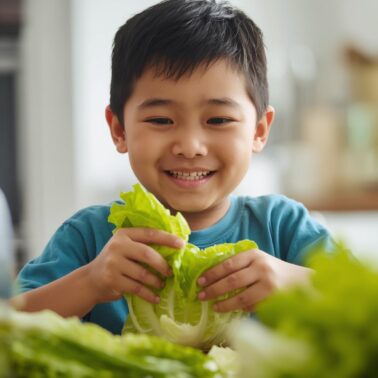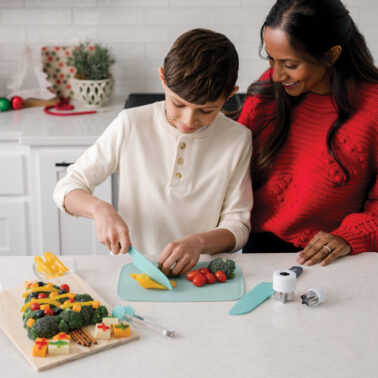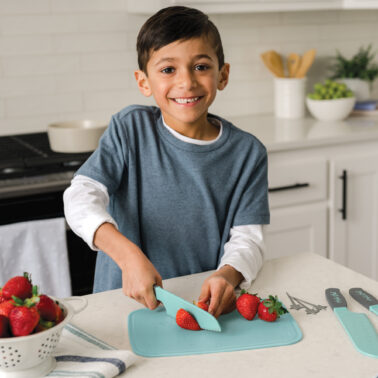Cooking with kids isn’t just about making meals—it’s about making memories. The kitchen can be a place of laughter, learning, and connection, where children gain confidence and essential life skills. But how do you know what’s safe (and fun) for your child at different ages? We’ve put together a guide to age-appropriate kitchen tasks along with simple safety tips to help little chefs grow into confident helpers.
Ages 2 -3 : Tiny Taste-Testers & Simple Helpers
Because keeping track of tiny humans can be an extreme sport…

At this stage, it’s all about exploration. Toddlers love to feel included and can start with the simplest tasks.
Great tasks:
- Washing fruits and veggies in a bowl of water
- Tearing lettuce or leafy greens into pieces
- Stirring with a big spoon
- Adding pre-measured ingredients into a bowl
- Using cookie cutters on soft foods (like sandwiches or melon)
Safety tips:
- Keep sharp objects, hot surfaces, and breakable items out of reach
- Use a sturdy step stool or learning tower for safe counter access
- Expect mess—it’s part of the fun!
Ages 4-5 : Growing Independence
warning: Side effects may include your kids telling you what to do…
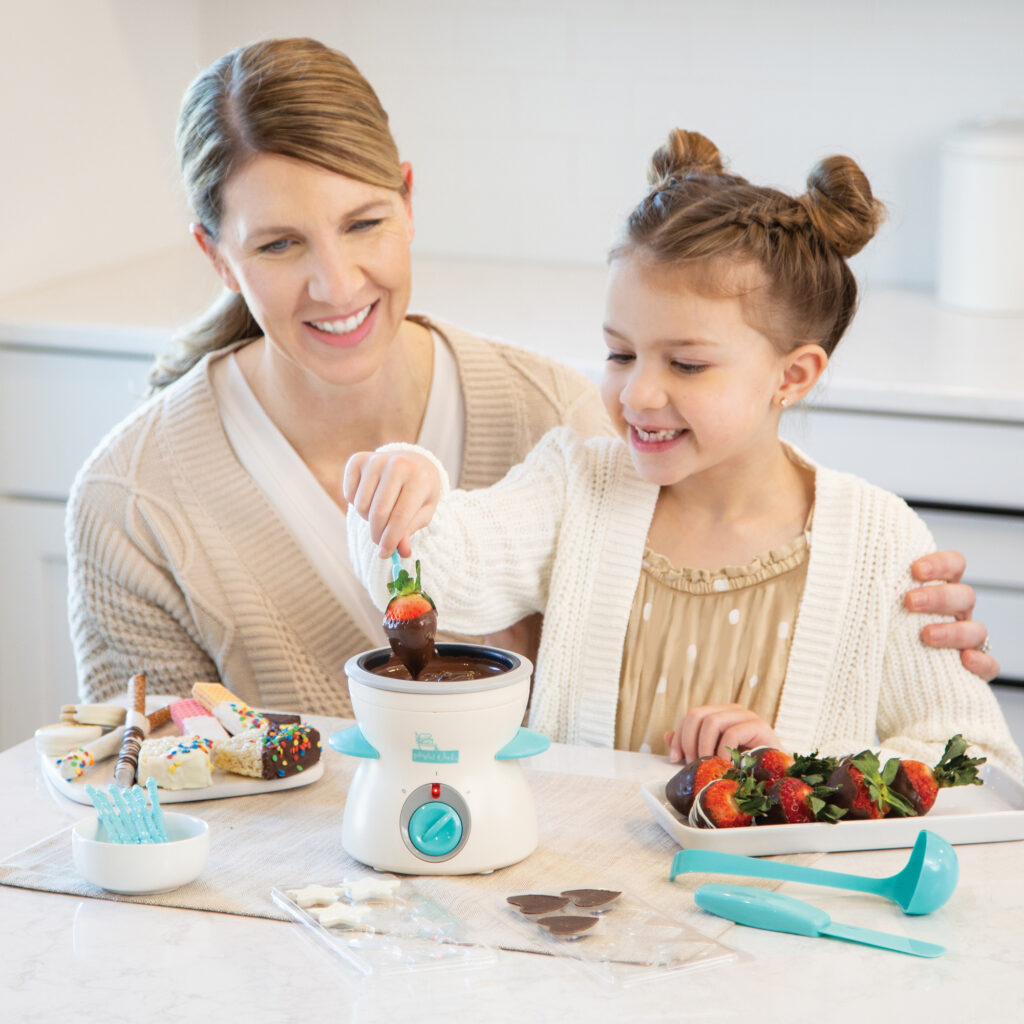
Preschoolers are eager to “do it themselves.” They can start practicing more control while still focusing on simple, low-risk jobs.
Great tasks:
- Measuring dry ingredients with cups or spoons
- Mixing batter and dough
- Setting the table
- Spreading soft toppings (like butter or cream cheese) with a kid-friendly spreader
- Peeling hard-boiled eggs or bananas
Safety tips:
- Choose unbreakable bowls and utensils
- Begin introducing safe handwashing and basic hygiene habits
- Show them how to hold bowls steady while stirring
Ages 6-7 : Beginner Chefs in Action
don’t worry, it’s probably fine…probably…
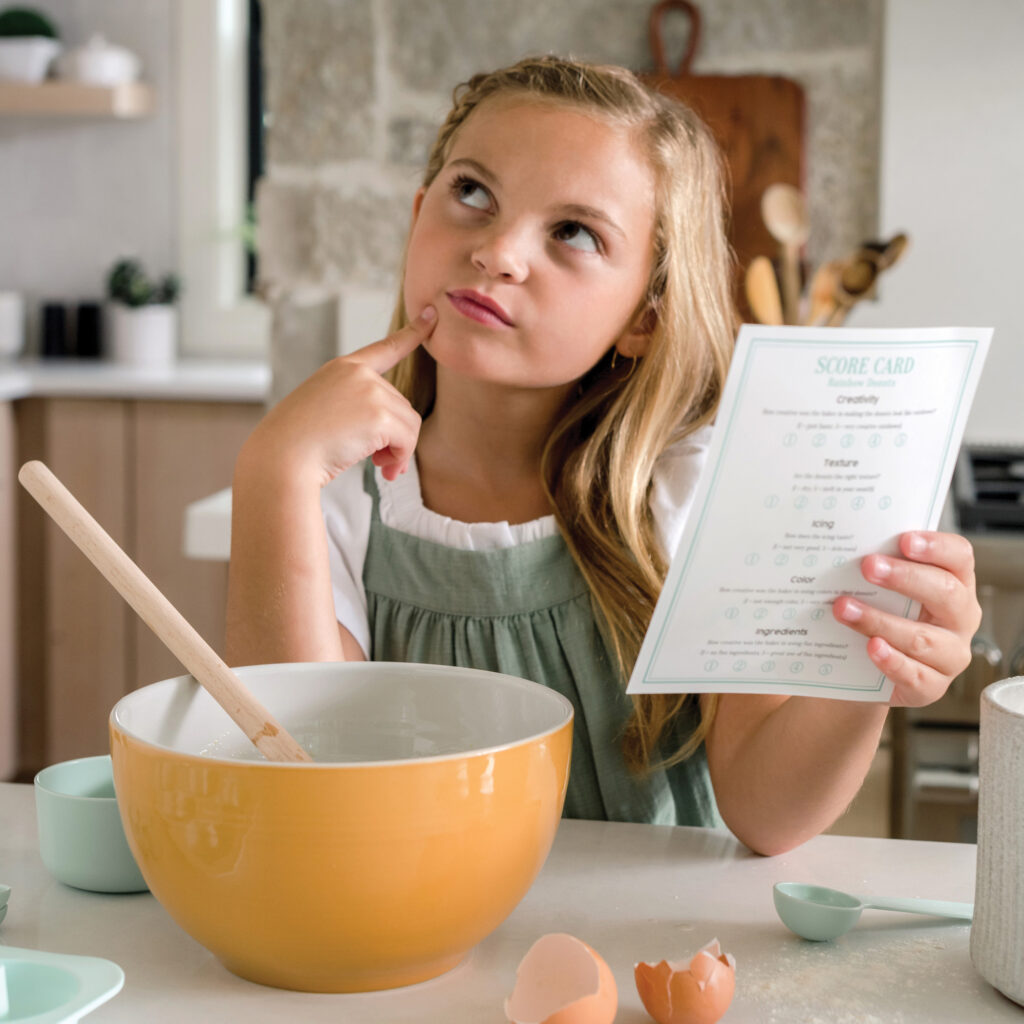
Kids in early elementary school are ready for bigger responsibilities and can start learning about the science of cooking.
Great tasks:
- Cracking eggs
- Cutting soft foods with a child-safe knife
- Measuring liquid ingredients
- Helping to read recipe cards out loud
- Kneading dough or mixing with more precision
Safety tips:
- Teach the “claw grip” for holding food safely when cutting
- Begin introducing oven and stovetop awareness (without direct use yet)
- Supervise closely during tasks that involve raw eggs or sticky dough
Ages 8-10 : Confident Kitchen Sidekicks
your kids are smarter than you think, but still, a little common sense never hurt…
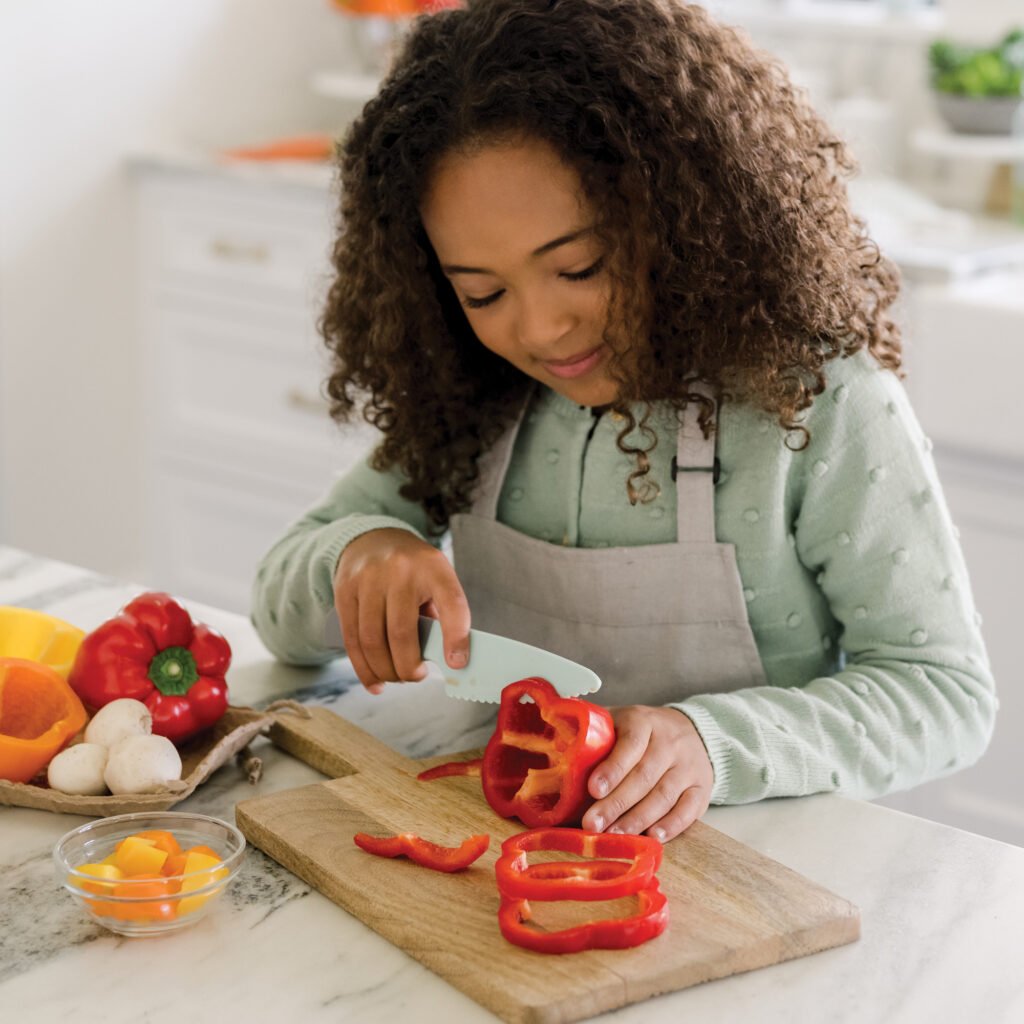
These kids can handle more advanced cooking and prep, making them excellent partners in family meal-making.
Great tasks:
- Safely chopping fruits and vegetables with a small, sharp knife (with guidance)
- Using a peeler for carrots, cucumbers, or potatoes
- Following simple recipes start to finish
- Packing their own lunchbox
- Using small appliances (toaster, blender) with supervisionCracking eggs
Safety tips:
- Teach safe handling of heat (like standing back when opening the oven)
- Reinforce cleaning up spills quickly to avoid slips
- Emphasize washing hands after handling raw meat or eggs
Ages 11-12 : Ready for the Real Deal
we’re just trying to get everyone to adulthood in one piece…
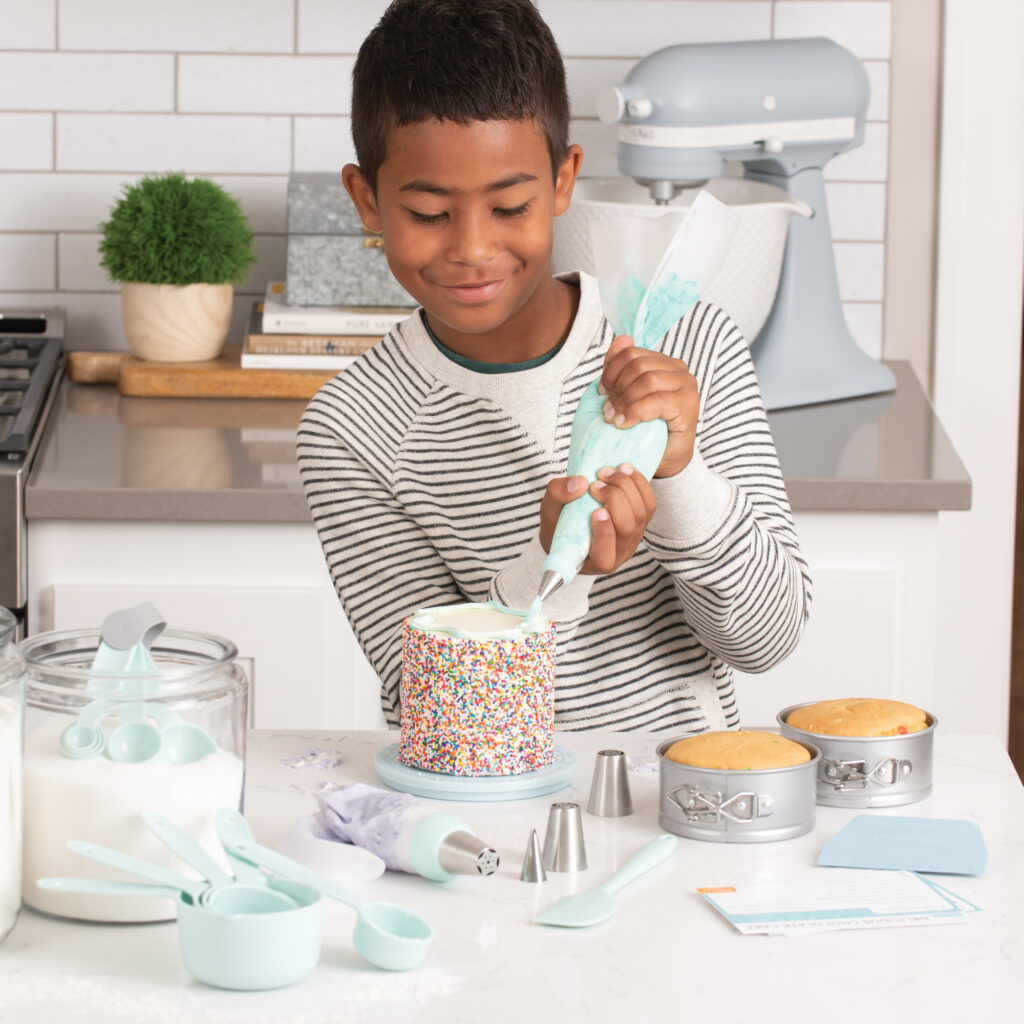
Pre-teens can start working more independently and learning full meal prep, giving them life skills that last well into adulthood.
Great tasks:
- Cooking simple dishes on the stovetop (scrambled eggs, pasta, grilled cheese)
- Baking cookies, cakes, muffins, or bread with minimal help
- Planning and preparing parts of a family meal
- Safely using the oven with reminders
- Experimenting with recipes and flavors
Safety tips:
- Review fire safety, including how to turn off burners and what to do if oil splatters
- Encourage them to clean as they go for safer, smoother cooking
- Support independence while staying nearby when heat or knives are involved

